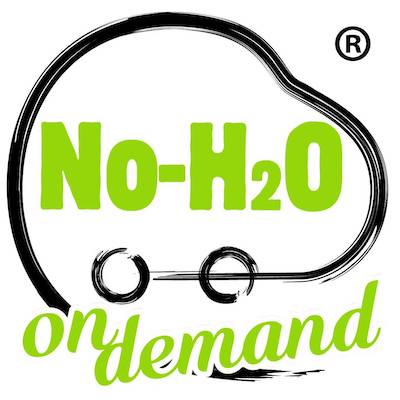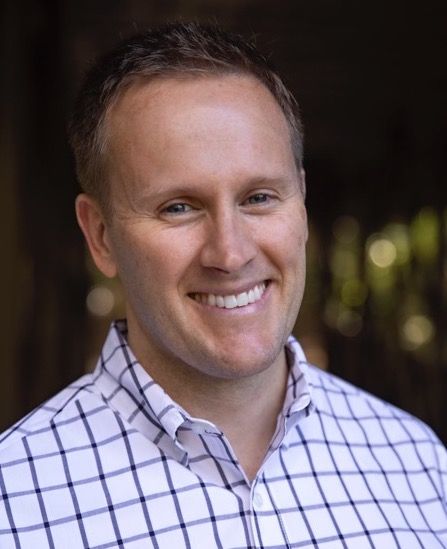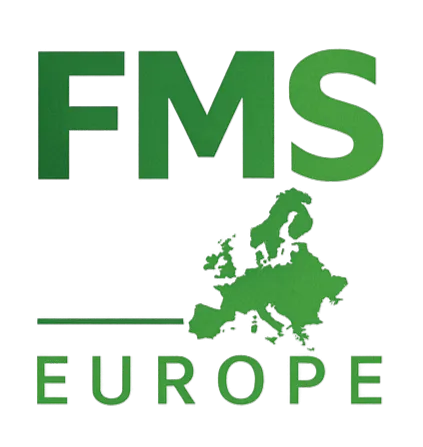
Can you Put the Cost to Franchise Your Business on your Balance Sheet?
October 10, 2025
In-N-Out Burger: The Brand, The Backstory, and Why It Never Franchised
October 22, 2025
When most people hear Emmet O’Brien’s name, they think of waterless car washes, sustainability, and a sleek mobile service model that disrupted a staid industry. But to many emerging entrepreneurs, O’Brien represents something else entirely: a guide for growth, a consultant who helps transform promising local businesses into scalable, franchisable systems. After founding and scaling No-H2O into one of the most innovative car-care franchises worldwide, O’Brien later transitioned out of day-to-day operations and now devotes his time to helping others do the same—building durable models, refining systems, and finding the balance between passion and process that fuels sustainable expansion.
From racetrack to franchising fast lane
Before he was known in franchise circles, Emmet O’Brien was known on the racetrack. A professional race-car driver from Ireland, O’Brien competed in the FIA World Touring Car Championship and other international circuits. Racing taught him precision, discipline, and a visceral understanding of systems under pressure—qualities that later became cornerstones of his entrepreneurial mindset.
In 2007, O’Brien founded No-H2O, a company built on a revolutionary idea: wash and detail vehicles without using water. It began as a chemical innovation—a biodegradable cleaning solution that could remove dirt and polish vehicles using a mist-on, wipe-off method—but quickly evolved into a mobile, on-demand franchise system. The idea matched a growing cultural shift toward convenience and environmental responsibility.
Over the following decade, O’Brien helped transform the company from a niche product into an international franchise with operations across Europe, the Middle East, and North America. During his tenure, the brand maintained a U.S. base in Fort Lauderdale, Florida, and scaled to 48 cities nationwide, serving as a hub for franchise development across major markets such as Boston, Houston, Atlanta, and Miami.
O’Brien’s involvement with No-H2O concluded in 2023, after which he redirected his focus toward independent consultancy and advisory work.
No-H2O remains a case study in what O’Brien would later teach: that strong systems, clear differentiation, and a values-based story are the foundation of exponential growth.
The evolution from founder to franchise mentor
After establishing No-H2O’s success, O’Brien began receiving inquiries from other founders—restaurant owners, service providers, and small-business entrepreneurs—asking how they could replicate his model. They didn’t just want inspiration; they wanted implementation. They wanted to know:
- How do I know if my business is franchisable?
- How do I document and protect my system?
- How do I recruit the right franchisees?
- How do I maintain quality when I’m not on site?
- How do I refine my brand so it attracts the right audience and builds long-term success?
His consulting philosophy rests on three pillars: systemization, scalability, and sustainability.
1. Systemization: Codifying excellence
“Franchising is basically the business of teaching other people how to deliver your promise,” O’Brien often tells founders. That requires systems—clear, repeatable, measurable methods that anyone can follow.
In his advisory work, O’Brien starts by mapping a company’s core process flow: lead generation, sales, service delivery, customer retention, and feedback loops. He then helps owners document those processes into a playbook that becomes the backbone of training and replication.
He stresses that operations manuals and brand standards aren’t bureaucratic exercises—they’re performance multipliers. “A great system doesn’t restrict creativity; it defines success,” he says. By standardizing what matters—customer experience, cost controls, and brand visuals—entrepreneurs free themselves to innovate on the edges.
His systemization framework typically includes:
- Detailed standard operating procedures (SOPs)
- Key performance indicators (KPIs) for franchisees
- Training modules and certification paths
- Supply chain and vendor management systems
- Customer relationship management (CRM) infrastructure
This blueprinting process transforms founders from operators into educators—ready to teach others how to achieve consistent results.
2. Scalability: Designing for growth, not survival
Many entrepreneurs design their business to survive, not to scale. O’Brien helps reorient that mindset. Scalability, he explains, requires more than good margins—it requires replicability.
He examines whether the business model can be reproduced in different markets without losing its magic. That involves analyzing:
- Unit economics – Does each location or mobile unit generate enough ROI to attract and sustain franchisees?
- Operational simplicity – Can new operators learn the model quickly and deliver consistent quality?
- Brand proposition – Does the value story resonate beyond the founder’s local market?
- Technology leverage – Are there systems that allow remote management, reporting, and customer engagement?
For No-H2O, scalability came from its mobile format and technology platform. By eliminating the need for expensive real estate, O’Brien created a model that could scale faster and cheaper than traditional car-wash franchises. He now helps other service-based brands replicate that agility—turning fixed-location concepts into asset-light, mobile, or hybrid formats that require lower capital but maintain high margins.
“Franchise growth isn’t about selling more units,” he notes. “It’s about building a business that’s easy to own, easy to operate, and hard to replicate outside your brand.”
3. Sustainability: Building long-term brand value
Rapid expansion can be seductive, but O’Brien warns founders that growth without stability is a trap. The sustainability phase of his consulting focuses on governance and support—the infrastructure needed to keep franchisees successful after launch.
He helps founders design:
- Field support systems for coaching franchisees
- Marketing funds that drive collective brand growth
- Feedback mechanisms to capture best practices
- Compliance structures to maintain standards and protect trademarks
O’Brien emphasizes that the relationship between franchisor and franchisee must be mutually beneficial, rooted in transparency and support. “Your franchisees are your first customers,” he says. “If you treat them well, your end customers will feel it.”
How O’Brien helps founders refine their business models
Beyond formal franchising, O’Brien consults with business owners who are simply trying to optimize their operations for growth, even if they never franchise. He guides them through restructuring product lines, improving pricing strategies, and leveraging technology for efficiency.
Some of his most impactful work involves helping founders simplify their offerings. “Most businesses get stuck because they’re doing too many things moderately well instead of a few things exceptionally,” he explains. His method of model refinement starts with a unit audit: what drives profitability, what drains resources, and what can be automated.
He often introduces frameworks for:
- Service packaging – bundling high-margin services for easier sales
- Automation – integrating CRM tools, digital booking, or delivery systems
- Customer lifecycle analysis – tracking retention and upsell opportunities
- Data-driven decision-making – using metrics to predict performance rather than react to it
These refinements not only improve the bottom line but also make businesses more investor- and franchise-ready.
The franchising mindset: Replicating not just business, but belief
What sets O’Brien apart is his belief that franchising is not just a business model—it’s a mindset. He teaches entrepreneurs to think like system architects, designing experiences that others can reproduce without losing authenticity.
He challenges founders to answer three questions:
- What do you believe that makes your business worth scaling?
- What are the non-negotiables that define your customer promise?
- How will you measure consistency as you grow?
This clarity becomes the foundation for every franchise system or growth strategy he helps design. It’s the difference between a company that grows fast and one that grows forever.
Case insights: Patterns across brands
While O’Brien doesn’t publicly disclose all client engagements, the patterns in his work are clear across industries—from automotive services to fitness studios, boutique hospitality, and home-improvement concepts. In each, he helps founders:
- Simplify the operational core
- Create measurable standards for performance
- Implement technology for visibility and control
- Build a recruitment and onboarding funnel for franchisees or managers
- Craft brand stories that inspire both investors and customers
These strategies have proven to increase conversion rates in franchise sales, improve unit profitability, and elevate brand consistency across locations.
Mentorship and thought leadership
O’Brien’s influence extends beyond direct consulting. He’s a frequent speaker at franchising conferences and guest on business podcasts, where he shares lessons on operational discipline, sustainable expansion, and the psychology of scaling. His storytelling—equal parts practical and motivational—resonates with audiences who have lived the chaos of entrepreneurship.
He often emphasizes humility as a competitive advantage. “In racing, if you think you’ve got it all figured out, that’s when you crash,” he says. “Business is the same. You keep learning, keep testing, and keep listening.”
Through webinars, workshops, and one-on-one advisory engagements, O’Brien continues to mentor founders on how to avoid the pitfalls of premature scaling and instead build businesses that attract talent, investors, and loyal customers.
The global perspective
Having operated across multiple continents, O’Brien brings a global lens to his consulting. He understands the regulatory, cultural, and logistical differences that affect international franchising—from FDD compliance in the U.S. to master-franchise structures in Europe and the Middle East.
He often helps brands evaluate whether they are ready for international expansion, advising on:
- Territory development strategies
- Master franchise vs. area developer models
- Localization of brand and training materials
- Cross-border supply chain and technology adaptation
His firsthand experience managing international licensees gives him a credibility few consultants can match. He knows how to protect brand integrity while respecting local market differences.
A blueprint for aspiring franchisors
O’Brien distills his philosophy into a simple framework he calls the Franchise Flight Plan—a step-by-step approach that helps founders move from concept to national footprint. The stages include:
- Feasibility Analysis – Determining if the business is franchisable based on demand, margins, and replicability.
- Model Design – Simplifying operations and clarifying the value proposition.
- System Documentation – Creating SOPs, training manuals, and brand standards.
- Legal and Financial Structure – Working with franchise counsel to develop an FDD, agreements, and fee models.
- Franchise Marketing and Recruitment – Building the sales funnel and lead management systems.
- Franchisee Support – Establishing onboarding, field coaching, and performance tracking.
- Continuous Improvement – Using data from the field to refine the system over time.
This framework reflects his conviction that franchising, done right, is a force multiplier—for entrepreneurs, franchisees, and the communities they serve.
From operator to architect of growth
Emmet O’Brien’s journey—from racer to founder, from founder to franchisor, and from franchisor to advisor—illustrates the full arc of entrepreneurial evolution. He built a company that changed how people think about car care, but his larger legacy may lie in how he helps others turn their ideas into enduring systems.
His consulting practice continues to grow, attracting entrepreneurs who want more than generic advice—they want a partner who has built, scaled, stumbled, and succeeded. In an era when franchising is both more accessible and more competitive than ever, O’Brien’s mix of operational precision, creative innovation, and global perspective is a powerful combination.
“Every great brand starts with one successful unit,” he says. “My job is to help you make that unit repeatable—so the world can experience what you’ve built.”






